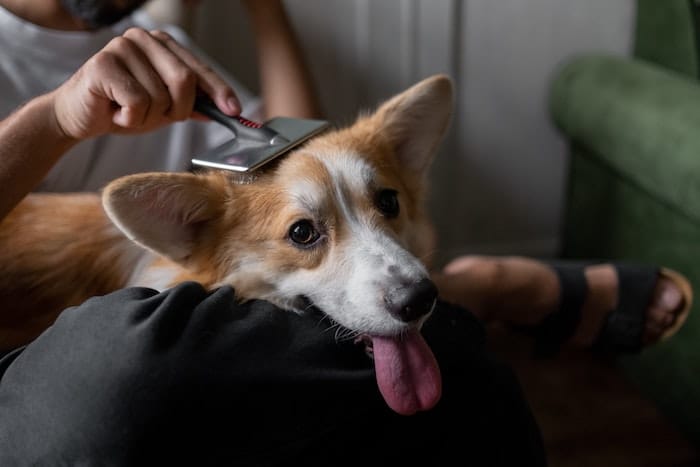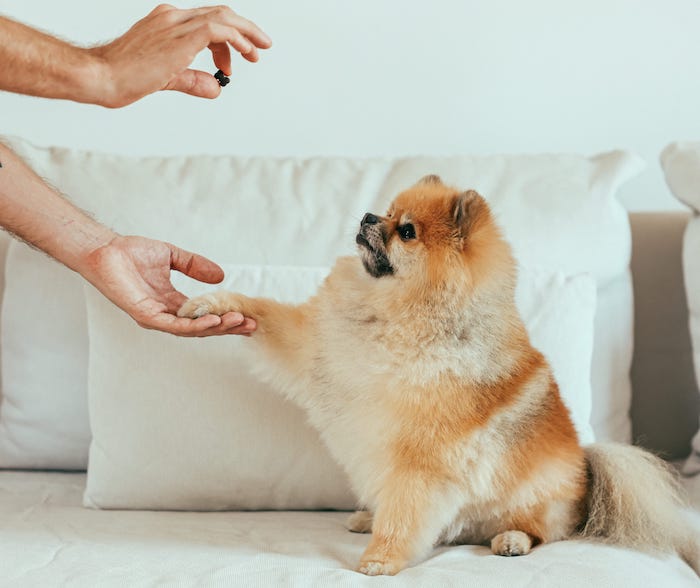Dogs can be allergic to food, too, just like us humans. There are many ways your pup can respond to a food allergy, and it can be as minor as itchiness and irritation to serious and scary.
There is no specific age to get these food allergies. And it can happen for many reasons. For instance, giving your dog the same food for months or years.
Food allergies can be dangerous, and not only do they cause digestive problems like diarrhea and vomiting. But also they can cause serious skin problems or behavioral issues.
It is a significant concern for many dog owners, and it can be pretty frustrating at times, not only for dog owners but also for dogs. Suppose you own a dog and don’t know how to tell if your dog is allergic to his food. Then don’t worry. We are here to help you. We have listed some common signs of food allergies that will help you know if your dog is allergic to his food.
Common Signs of Food Allergies in Dogs
There are several reasons for dog food allergies, from sneezing to skin reactions. We have listed some signs that help you to identify whether your dog is suffering from a food allergy or not.
Chronic Ear Infections
If your dog gets frequent ear infections like he has to get treatment more than 2 to 3 times a
year, it is a sign that your pup suffers from a food allergy. Ear infections can happen for various reasons, but if they occur a few times a year, it is a sure thing due to food allergies.
Your dog ears seem yeasty, stinky, and have brown or black build-up. If your dog scratches the ear multiple times or continuously shakes his head, you should take it as a hint that he might suffer from a food allergy.
Red, Brown, Or Bronze Nail Beds
Naturally, the dog’s nails are white with a pink quick. But if you notice that the base of your dog’s nail is bloody red, brown, or red-brown, it is a sign of an inflammatory immune response. Nails are sensitive; if your dog itches or licks them frequently, you should know that something is up.
If your dog is among Bulldogs, Bully breeds, Spaniels, etc., then it is quick to notice this sign as they all have white nails.
Bronzing Around The Lips
If your dog’s lips, toes, or skin seem to be pink or red or is inflamed and your itches them frequently, it indicates that he has a food allergy triggered by yeast colonization.
If you have a dog breed with a white coat, then it is easily noticeable if he has pink or red inflamed lips, jowls, or feet.
Itchy Skin, Red Underbelly, And Dull Coat
If your dog has itchy, red, dry, and inflamed skin, it is a sign of suffering from a food allergy. The dog will get no relief after the excessive itching resulting in hair loss in the affected areas.
You might clean him by giving him a good bath with an excellent conditioner or even allergy medications, but it does not relieve him from constant itching.
Watery Eyes
Watery eyes are one of the signs that will help you understand that your dog is suffering from a food allergy. When humans have a fever, they experience symptoms like watery eyes, itching, stuffy nose, etc.; dogs also show the same symptoms when they have food allergies.
When your pup constantly scratches their eyes or has teary eyes, it indicates that he is suffering from a food allergy.
Dog Food Allergy Treatment
The treatment for the food allergy your pup is suffering from lies on one principle: to identify the food your pup is allergic to and stop feeding him that food. You must try several foods for some time as it is the only solution to identify which food your dog is allergic to.
Apart from this method, several other ways come in handy when dealing with dog food allergies. Let’s look at those ways.
Antihistamines and Other Treatments
If you take your pup to a vet, then there are good chances that he may prescribe an antihistamine for the constant itching. He can also prescribe antifungal treatments like ketoconazole, etc. these treatments provide relief, but it is short-lived when it comes to severe food allergies.
There is no need to hospitalize your dog, but if he is experiencing symptoms like severe vomiting, diarrhea, etc., he should be hospitalized for supportive care.
Homemade Diets
In most cases, when dog owners see their dogs in pain, they are tempted to feed them homemade food to remedy their food allergies. And this can be a good option as they can control what they are feeding their dogs. But there are possibilities that this homemade diest lacks some essential ingredients which will harm your dog. So it is an excellent option to talk to your vet before feeding your dog any homemade food.
Vegan Dog Food Diets
After trying several foods, some owners and vets use vegan diets as a remedy, but it is not proven that it is effective dog food for allergies. However, if your dog is allergic to meats, it is a sure way to avoid food allergies. But you should keep in mind that these vegan diets should be well prepared, just like homemade diets, with the advice of a vet. Certain vegan foods are available in the stores that lack nutrients but are still prescribed by vets just because of their popularity among dog parents.
Conclusion
There is no particular dog food for allergies; one food works for some dogs, and another works for others. It is totally up to your dog which food will work in his case. It is essential to look for food that contains quality ingredients and does not contain chemicals. Companies that make hypoallergenic dog food and contain limited ingredients in their dog foods follow best practices in manufacturing dog food.
Many dog parents prefer to feed their pups homemade food because they don’t trust dog food companies. They want their dogs to feed on quality diet that are free from contamination.
Related Reading




